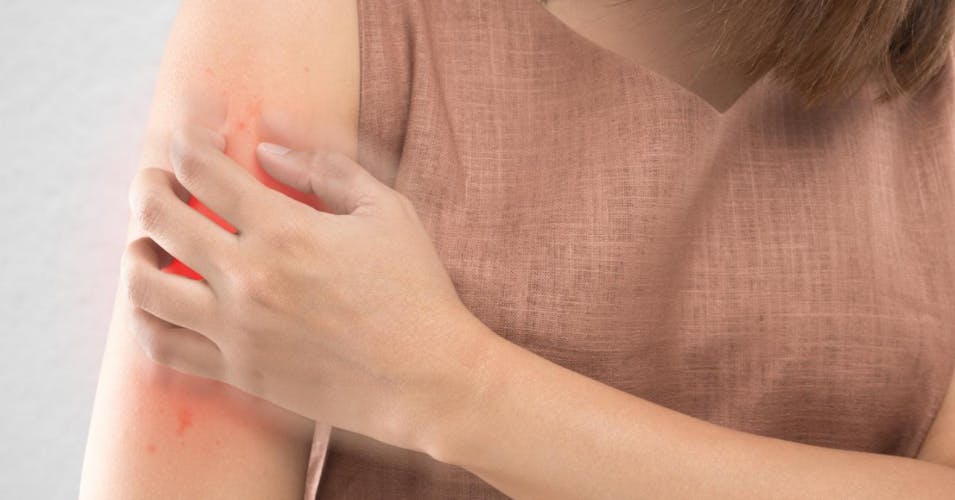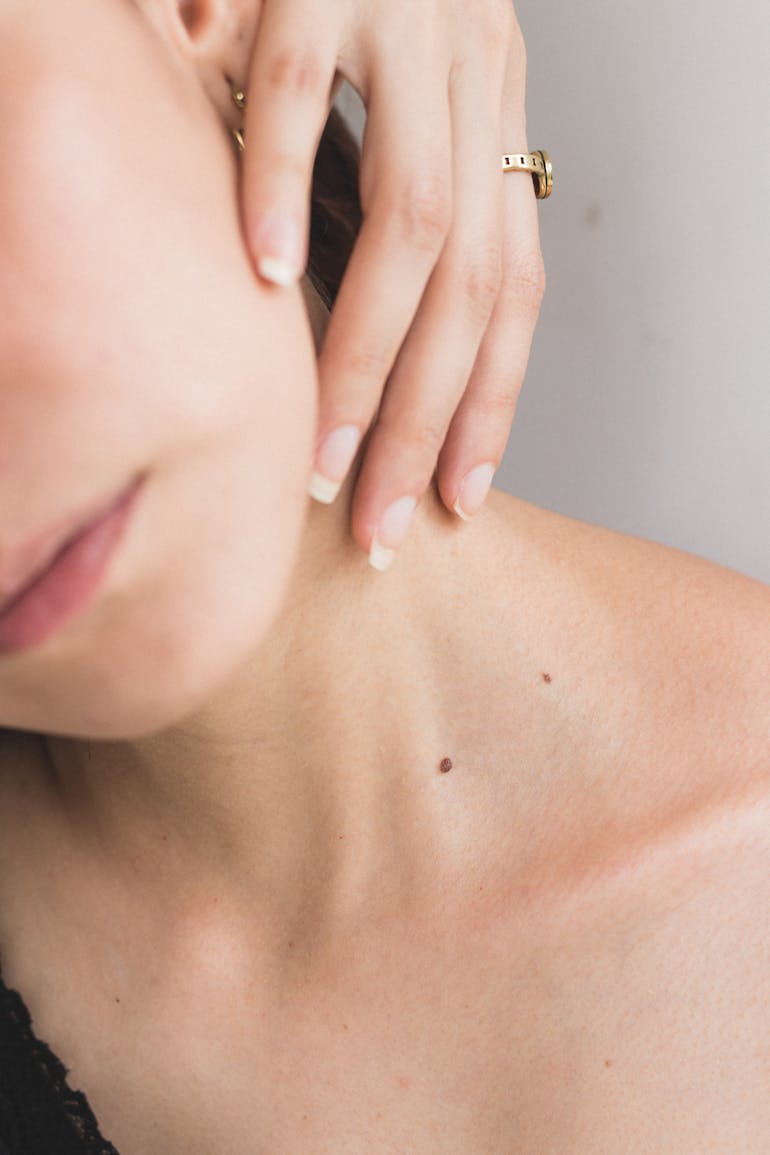Breaking Free from the Itch-Scratch Cycle: A Comprehensive Guide
Reviewed and fact-checked by Alessandro Grenci, Superintendent Pharmacist. Read our editorial policy to see how we create informative, accurate content.
Introduction to the Itch-Scratch Cycle
Have you ever wondered why that pesky itch just won't go away, no matter how much you scratch? Well, you're not alone. This phenomenon is known as the itch-scratch cycle, a bothersome process that we've all experienced. Simply put, the itch-scratch cycle is a series of events where an itch leads to scratching, which in turn causes more itching. It's a vicious cycle that can be quite hard to break.
Etiology of Itch
So, what exactly causes an itch? The answer is more complex than you might think. Itching can be triggered by a variety of factors, including dry skin, allergic reactions, and certain medical conditions like eczema and atopic dermatitis. Other reasons for the initial itch may be different types of infections such as fungal, bacterial, viral, yeast, and parasitic infections. On a cellular level, itching is often caused by the release of certain chemicals in the skin, such as histamine. These chemicals stimulate nerve endings in the skin, sending an "itch signal" to the brain.
Neurobiology of Itch
Delving deeper into the neurobiology of itch, we find that the process is quite intricate. The itch signal travels from the skin to the spinal cord and then up to the brain, which interprets the signal as an itch. This entire process is part of a complex network of nerve pathways known as the itch-scratch reflex. Understanding this reflex is key to developing effective treatments for chronic itching. You can learn more about the mechanisms of itch from this comprehensive review by the National Institutes of Health.
The Role of Scratching in the Itch-Scratch Cycle
Now, let's talk about scratching. While it might provide temporary relief, scratching can actually exacerbate itching. This is because scratching causes minor damage to the skin, which leads to inflammation and the release of more itch-causing chemicals. This is the crux of the itch-scratch cycle. It's a reflex-like response that can be incredibly hard to resist. But don't worry, there are ways to break this cycle and find relief.
Alessandro Grenci, Superintendent Pharmacist:
The sensation of needing to scratch is only one part of the problem. As you see when we look at the underlying factors this is as much a mental game as it is physical. That is why a combination of strategies is important when combating the itch-scratch cycle.
Breaking the Itch-Scratch Cycle
Causes of the Itch-Scratch Cycle
Now that we've explored the itch-scratch cycle and its underlying mechanisms, let's delve into what causes this cycle. As we've discussed, itching can be triggered by various factors, including dry skin, allergies, and certain skin conditions like eczema and atopic dermatitis. However, the itch-scratch cycle is perpetuated by the act of scratching itself. When we scratch, we cause minor damage to the skin, leading to inflammation and the release of more itch-causing chemicals. It's a tricky situation, but don't worry, there are ways to break free!
Techniques to Break the Itch-Scratch Cycle
Breaking the itch-scratch cycle can be a challenge, but it's certainly not impossible. Here are a few techniques that can help:
- Distraction: Engaging in activities that keep your hands busy can help reduce the urge to scratch.
- Cold compresses: Applying a cold compress to the itchy area can help numb the skin and reduce itching.
- Mindfulness and relaxation techniques: Practices like meditation and deep breathing can help manage the urge to scratch.
For more detailed strategies, check out this helpful guide from Everyday Health.
Role of Moisturisers in Managing Itch
One of the simplest yet most effective ways to manage itch is to keep your skin moisturised. Dry skin can exacerbate itching, so regular application of a good moisturiser can go a long way in managing the itch-scratch cycle. Look for moisturisers that are fragrance-free and hypoallergenic to avoid any potential skin irritation. Remember, consistency is key. Make moisturising a part of your daily skincare routine, and your skin will thank you!
Emotional Reward of Pleasure and Stress-Reduction After Scratching
Now, you might be wondering, "If scratching is so bad, why does it feel so good?" Well, scratching can actually provide a temporary emotional reward. It can bring a sense of pleasure and stress relief, which is why it's so hard to resist. However, the relief is short-lived and can lead to more itching in the long run. It's a classic case of short-term gain, long-term pain.
The Impact of the Itch-Scratch Cycle on Patients
The itch-scratch cycle can have a significant impact on a person's quality of life. Chronic itching and scratching can lead to skin damage, sleep disturbances, and even psychological distress. It's not just a physical issue, but a mental one as well. That's why it's so important to break this cycle and find effective ways to manage itch.
Managing and Preventing the Itch-Scratch Cycle
Tips for Relieving Itchy Skin
Now, let's get down to some practical tips for relieving itchy skin. Here are a few strategies that can help:
- Keep your skin moisturised: As we've discussed, dry skin can exacerbate itching. Regularly applying a good moisturiser can help keep your skin hydrated and reduce itching.
- Avoid triggers: If you notice that certain substances or conditions trigger your itch, try to avoid them as much as possible.
- Anti-itch cream: Such at Eurax may help in reducing the itch.
- Wear comfortable clothing: Tight or scratchy clothing can irritate your skin and trigger itching. Opt for loose, comfortable clothing made from soft materials like cotton.

The Itch-Scratch Cycle in Eczema: Tips for Relief
For those dealing with eczema, managing the itch-scratch cycle can be particularly challenging. However, there are specific strategies that can help. In addition to the tips mentioned above, it's crucial to manage your eczema effectively. This can involve using prescribed medications, avoiding known triggers, and maintaining a regular skincare routine. For more specific tips, check out this resource from Everyday Health.
Itch from skin infections
Your itch may be caused by an infection and in this case, it is important to seek medical advice before starting a treatment. Depending on the nature of the infection there may be over-the-counter medications available which will do the trick. For example, there are good OTC solutions for fungal or yeast infections.
Alternative Treatments for Itching
In addition to conventional treatments, there are also alternative treatments that can help manage itching. These can include natural remedies like aloe vera and oatmeal baths, as well as practices like acupuncture and hypnosis. However, it's important to note that while these treatments can help manage itch, they should not replace conventional treatments, especially for conditions like eczema and atopic dermatitis. Always consult with a healthcare professional before starting any new treatment.
How Long Does It Take to Break the Itch-Scratch Cycle?
Breaking the itch-scratch cycle is not an overnight process. It takes time, patience, and consistent effort. The length of time it takes to break the cycle can vary depending on the individual and the underlying cause of the itch. However, with the right strategies and treatments, it is possible to break the cycle and significantly reduce itching.
Conclusion: The Importance of Breaking the Itch-Scratch Cycle
In conclusion, breaking the itch-scratch cycle is crucial for managing itch and improving quality of life. While it can be a challenge, remember that you're not alone in this journey. With the right knowledge, strategies, and support, you can break the cycle and find relief from itch.
Remember, it's not just about managing the physical symptoms, but also about taking care of your mental well-being. So, be patient with yourself, seek support when needed, and keep striving towards an itch-free life. You've got this!
Frequently Asked Questions
How do you break the itch-scratch cycle?
Breaking the itch-scratch cycle involves a combination of strategies, including keeping your skin moisturized, avoiding itch triggers, and using appropriate treatments. Distraction techniques and mindfulness practices can also help manage the urge to scratch.
What causes the itch-scratch cycle?
The itch-scratch cycle is caused by a series of events where an itch leads to scratching, which in turn causes more itching. Itching can be triggered by various factors, including dry skin, allergies, and certain skin conditions like eczema and atopic dermatitis. Scratching exacerbates the itch by causing skin inflammation and the release of more itch-causing chemicals.
Is it better to rub or scratch an itch?
While scratching can provide temporary relief, it can also damage the skin and exacerbate itching. Rubbing the itchy area, on the other hand, can provide relief without causing as much skin damage. However, it's best to try and resist the urge to scratch or rub and instead use appropriate treatments to manage the itch.
Why is scratching an itch so relieving?
Scratching can provide a temporary emotional reward, bringing a sense of pleasure and stress relief. However, the relief is short-lived and can lead to more itching in the long run. It's a classic case of short-term gain, long-term pain. Remember, breaking the itch-scratch cycle is key to managing itch effectively.
Are there any products that can help break the cycle?
A general moisturiser can help in decreasing the itching sensation. For example, the Hydromol or Dermol range has a wide selection of products that can help break chronic itching. But remember that topical treatment is just one part of combating this rather annoying phenomenon.
Sources
- Ask the Allergist: Breaking the Itch-Scratch Cycle - Allergy & Asthma Network
- The Itch-Scratch Cycle: A Review of the Mechanisms - National Institutes of Health
- How to Break the Itch-Scratch Cycle With Severe Eczema - Everyday Health
- The Itch-Scratch Cycle: A Neuroimmune Perspective - ScienceDirect
- Itching and Scratching - National Eczema Society
- Dermatologist Tips to Break the Itch Scratch Cycle - Jivome
- The Itch-Scratch Cycle of Eczema: Tips for Relief - MyEczemaTeam
- Top Tips for Relieving Itchy Skin - National Eczema Association

